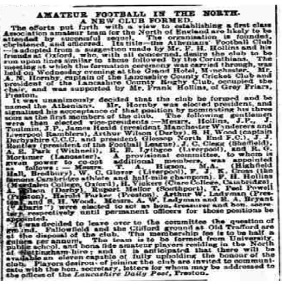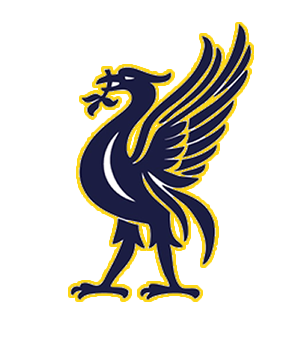
James Heald, a Founder Rambler
When the Percy Bateson called on the Public School men of Liverpool to form a quality football club, his plea reached the ears of a certain student who was studying at Cambridge University. His name was James Heald.
Born the of 22nd April1859 at a residence called “Low Farm” in Halewood, he was the first child of William, a Liverpool Timber Merchant, and his Wife Jane. The 1871 census finds the family now living in Birkdale but James is not recorded because he is away being educated at Shrewsbury School. During his time there the family relocated and where living in Didsbury area of Manchester when he “went up” to Cambridge University, in 1878, and enrolled at Trinity College. There he became acquainted with Egerton Stewart -Brown.
Both men later became founder members Liverpool Ramblers and took part in inaugural match, against Bootle, on the 23rd of September 1882. Next month James Heald was reported to be present – representing Liverpool Ramblers – at the birth of the Liverpool & District FA that took place at The Tarleton Hotel. He was voted on to the committee and promptly informed them that he had been empowered by his club membership to make an ostentatious contribution towards a trophy for which all clubs could compete in a knockout. (This competition is now in its 140th year but it has been many years since The Ramblers have entered.)
The following December James Heald took part in the 3-0 FA Cup defeat by Bolton Wanderers at Pikes Lane where he was praised for giving a “magnificent display of goalkeeping” by the experienced football journalists of East Lancashire. He also took part in the first Liverpool FA knockout final that was on the played the 23rd of April 1883. Bootle – who imported guest players – won the game 3-1. James Heald had by then left University – having been awarded a M A – but was requested to play in goal for the Cambridge University Wanderers side when they toured the North West of England.
Choosing the law as his profession, James Heald became articled to a Mr Edward Whitley who was a Solicitor and Member of Parliament for Liverpool. He began representing his firm at their practice that was situated on Brook Street in Manchester. He maintained what was to be a lifelong a membership of Liverpool Ramblers but also played football for a sports club called Manchester Wanderers of whom he eventually became president.
On the 8th of September 1892, the pews of All Hallows church in the Allerton area of Liverpool were full from the front to back when Henrietta Stewart -Brown walked down the isle on the arm of her Father to marry James Herald whose best man was his brother Arthur. The groom was also supported by the several brothers of bride while the service was conducted by The Right Reverend , The Lord Bishop of Saskatchewan and Calgary. The wedding feast, attended by 300 people, took place at the nearby home of the Stewart – Brown family from where the newly-weds left for their Honeymoon. On returning, they took up residence in the Didsbury area of Manchester.
On the 19th June 1889, James Heald -along with several other local dignitaries – was present at a meeting that took place at The Grand Hotel in Manchester. Its object was the formation of a classical football club – to be called The Athenians – similar to Liverpool Ramblers and the Corinthians. The venture, it would appear, failed to find the necessary support required and the idea was abandoned. During his time in Manchester, James Heald Fathered 2 sons Lionel, born 1893, and Frank who was born in 1897. He also donated much of the land he had inherited for the good of the local community and oversaw the building of Didsbury Public Library.
In 1909, James Heald took early retirement and returned to his native Liverpool where he purchased a fine house, named Oakwood, near to the birthplace of Henrietta in Allerton. The couple also bought a second home, called Peatwood, at Market Drayton in Shropshire. Mr Heald became Alderman on the Liverpool council and occupied the bench as a Justice of the Peace. He devoted many hours of his own time to many public services – which included the chair of the Libraries Committee – and was involved in the improvement of the Liverpool Fire Service at the time of his death – at Market Drayton – on the 14th of February 1921. His funeral service was held at the parish church of St Nicholas in Halewood.
His coffin was brought to the location on a Fire Appliance that was escorted by a large body of Firemen. Many local dignities were amongst the large congregation that included City Engineer J A Brodie with whom Liverpool Ramblers had helped to develop the football goal net. E C Glazebrook represented the present-day players of Liverpool Ramblers while Godfrey W Turner was there on behalf of the founder members. The Bishop of Liverpool -assisted by the vicar of All Hallows – conducted the service before the body of James Heald was buried in the adjoining cemetery.

